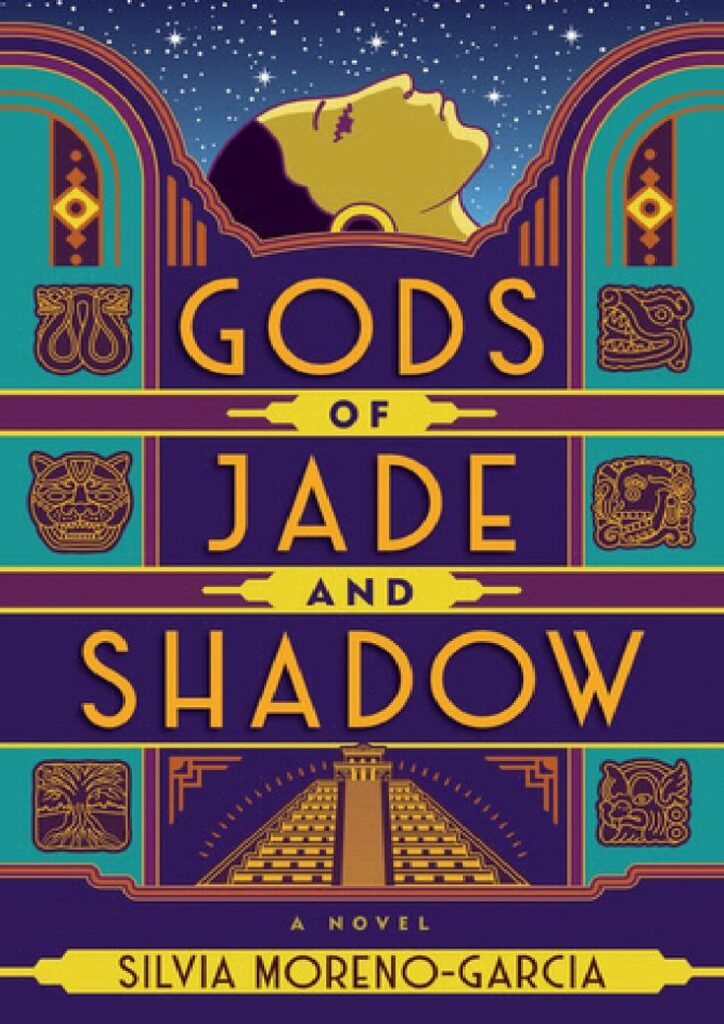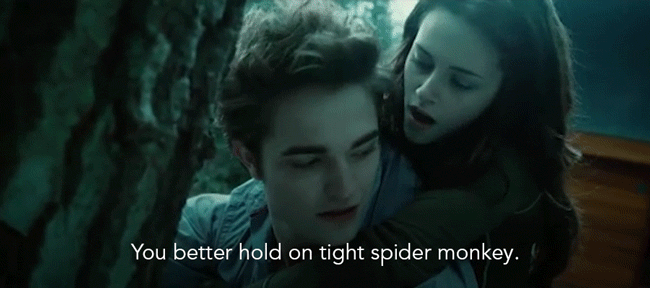Minor spoilers for the first half of Gods and Jade and Shadow here. I’m not ruining any reveals, but if you’re touchy about spoilers, come back when you’ve read it.

Gods of Jade and Shadow is the first book I’ve read by Silvia Moreno-Garcia, and when I said I “read” it, what I mean is that I inhaled it. You know how sometimes you’re in a slump, you have no motivation to read anything, and you can’t seem to even find any books to try to read that you don’t instantly hate? Then you get a book kind of at random, and it takes your breath away and makes you want to stop sleeping and bathing so you can spend more time reading?
Gods of Jade and Shadow was that book for me. It strikes the perfect balance between fairytale and coming-of-age romance, darkness and optimism, quick pacing and deliberateness. Everything about this book feels thoughtful and controlled, but it’s still fun and even pretty light-hearted, which I desperately needed between reading Passing Strange and The Unbroken.
The story is a Mayan-inspired fantasy about Casiopea Tun, a seventeen-year-old with “a knack for quiet insurrection,” who lives as a servant in her maternal grandfather’s home. Although she lives in the largest house in their small town, Casiopea is an outsider, walled off from her neighbors by her family’s wealth but simultaneously abused and neglected by her family for her father’s indigenous heritage.
She hopes to someday return to the city where she lived with her father. She wants to swim in the ocean at night, to dance to fast music, and to learn to drive a car. Until then, she lives in fear of her cruel older cousin, Martin, and of the Catholic priest, who:
… eyed every woman in town with suspicion. Each diminutive infraction to decency and virtue was catalogued. Women were meant to bear the brunt of inquiries because they descended from Eve, who had been weak and sinned, eating from the juicy, forbidden apple.
Then she accidentally frees the death god Hun-Kame from a box in her grandfather’s bedroom. A bone-shard lodges in her finger, binding her to the god, who draws life from her blood. The connection is dangerous to them both. With every moment he remains dependent upon her, Hun-Kame becomes more mortal, and Casiopea comes closer to death. She must join him on a journey to recover the parts of his body his twin has stolen in order to regain his full power and his godhood.
Casiopea is a delight, well rounded and flawed and just incredibly charming. If you’re tired of Strong Female Character who have to constantly wield their anger as a weapon but don’t long for a return to the Cinderella/Sleeping Beauty/Snow White mold, you’ll love Casiopea. She’s practical but hopeful, kind but with a backbone.
And she has no particular special powers! She’s just curious enough to get herself in trouble and brave enough to get herself back out again.
I loved Moreno-Garcia’s narration. Sometimes, with fairytale retellings that strive to capture a fairytale style, I have a hard time connecting to the characters and the stakes. That was a problem for me with Malinda Lo’s Ash, but it didn’t come up for me here. I think Moreno-Garcia strikes a good balance between didactic asides (“Martin, who had a rather atrophied imagination, incapable of considering for long periods of time anything that was not directly in front of him as worthy of imagination …”) with intensely personal, heartfelt moments and exciting conflicts.
There are a lot of fantasy and fairytale tropes at work here, but Moreno-Garcia uses them with such care that they feel original to Casiopea’s story. Two examples that stand out to me:
- Casiopea is Obliviously Beautiful in a way that both makes sense and ties into the themes of the story: colonialism, cultural changes, abuse, trauma, etc. Of course a Mayan death god would see more beauty in her indigenous features than she does, initially.
- There’s a pretty extreme Age-Gap Romance going on here between Casiopea, who is seventeen, and Hun-Kame, who is … several thousand years old, probably? I know I literally just said the only way to make this okay would be for the elder to have been in a coma for most of his life, but I take it back. I think Gods of Jade and Shadow pulls it off without that, though you’ll have to read to see if you agree. It isn’t one particular event or explanation, it’s the book as a whole that made me okay with it.
This book is getting a lot of comparisons to Neil Gaiman’s American Gods, but I think that only holds up if you’re comparing premises. Gods of Jade and Shadow is both more hopeful and more fun.
I think a better comparison is Kate Elliot’s Cold Magic trilogy. You have a brave, strong girl going to right generational wrongs in the company of a powerful, grumpy man who’s made better, braver, and kinder by knowing her. However, Gods of Jade and Shadow is less focused on romance than Cold Magic, and Hun-Kame is less of an ass than Andevai.
I also wanted to compare it to A Wrinkle in Time, in that Casiopea is an ordinary girl who triumphs over extraordinary obstacles, and her flaws are ultimately her strengths. Then I googled Kamazotz (giant Mayan bat monster) because the name sounded familiar, and it turns out that’s where L’Engle got the name of her dystopian planet, which made me feel a little icky. So, um, forget that comparison, I guess, although I would still recommend this book to anyone who liked A Wrinkle in Time.
Or, honestly, anyone. I can’t think of a single person I would want to recommend books to who wouldn’t like this one. Go read it and then come back and talk to me about it. It’s all I want to talk about.
More Info
Publisher: Del Rey
Hardcover Page Count: 334
You can find Silvia Moreno-Garcia on Twitter or her website. Buy the book and support your local independent bookstore on Bookshop, or get it on Amazon.





